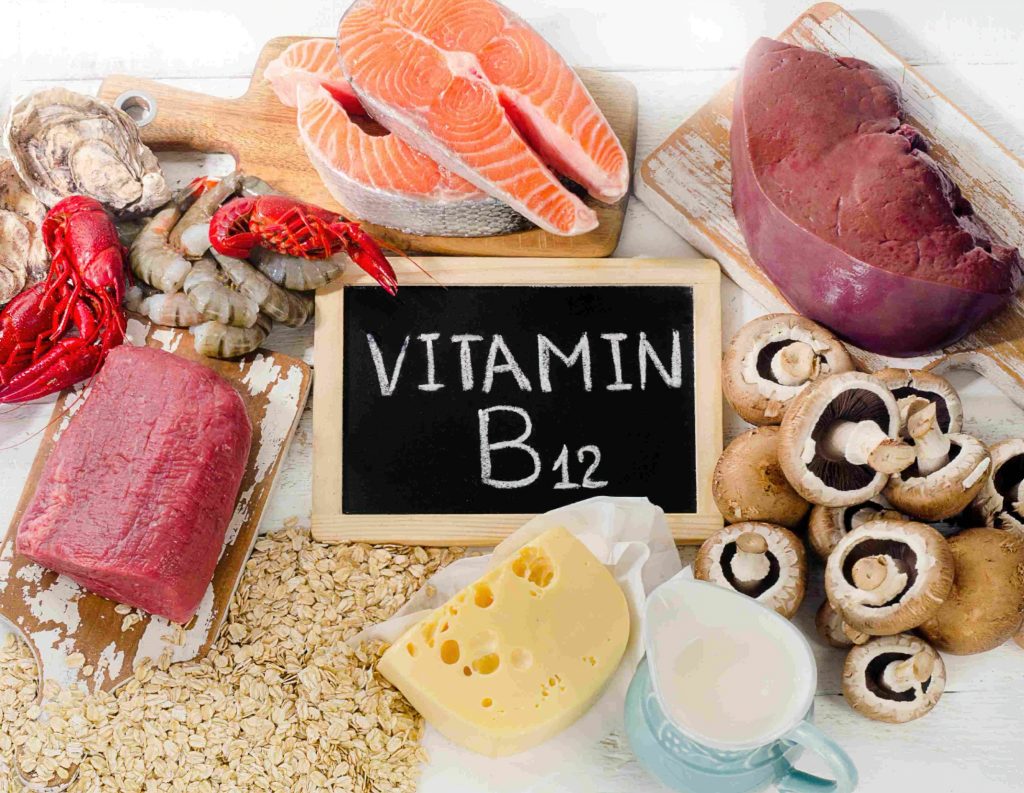Vitamin B12: An Athlete's Secret Weapon
Are you an athlete looking to gain an edge in your training? If so, your secret weapon might be smaller than you think. Today, we’re diving into the pivotal role of vitamin B12 in sports nutrition.
Why Vitamin B12 is Essential for Athletes
Vitamin B12 plays a key role in several bodily functions vital to athletes. It aids in the production of red blood cells, crucial for delivering oxygen to your muscles during intense exercise. It also supports a healthy nervous system, translating into better coordination and motor control. Furthermore, B12 plays a role in energy production, an essential factor in any athlete’s performance.
However, getting enough B12 can be a challenge, especially for vegetarian and vegan athletes, as it is predominantly found in animal-based foods. Thankfully, several foods and recipes can help.
Recipes Rich in Vitamin B12
-
Salmon Salad
- Ingredients: 1 fillet of salmon, mixed salad greens, cherry tomatoes, cucumber, olive oil, lemon juice.
- Preparation: Grill the salmon fillet and set it aside. Mix the salad greens, cherry tomatoes, and cucumber. Drizzle with olive oil and lemon juice. Top the salad with the grilled salmon.
This light, nutritious salad delivers a hearty dose of B12 thanks to the salmon. It’s perfect as a pre-workout meal.
-
Vegan B12 Smoothie
- Ingredients: 1 cup of fortified almond milk, 1 banana, a handful of spinach, 1 tablespoon of nutritional yeast.
- Preparation: Blend all the ingredients until smooth.
This vegan-friendly smoothie leverages the power of fortified almond milk and nutritional yeast, both excellent B12 sources. Enjoy it as a quick snack or breakfast on the go.
-
Eggs Benedict
- Ingredients: 2 eggs, 2 slices of whole-grain bread, 2 slices of turkey bacon, hollandaise sauce.
- Preparation: Poach the eggs and toast the bread. Cook the turkey bacon until crispy. Layer the turkey bacon and poached eggs on the toast. Drizzle with hollandaise sauce.
A classic breakfast dish, Eggs Benedict, provides a substantial amount of B12. Substitute traditional bacon with turkey bacon for a healthier version.
Boost Your Performance with B12
Incorporating B12-rich foods into your diet can significantly boost your athletic performance. By understanding the importance of vitamin B12 in sports nutrition, you can ensure your body gets the nutrients it needs to excel. Always remember, nutrition is just as important as your training regimen. Fuel your body right, and it will return the favor on the field or in the gym.
Understanding the Symptoms of B12 Deficiency
Awareness of the symptoms of B12 deficiency is as crucial as knowing its benefits. Athletes experiencing fatigue, weakness, constipation, loss of appetite, and weight loss may be lacking in this essential nutrient. Neurological problems, like depression, confusion, balance issues, and poor memory, can also indicate B12 deficiency.
B12 deficiency can hamper athletic performance by lowering energy levels and affecting muscle strength and coordination. If you suspect a deficiency, consult a healthcare professional. They may recommend dietary changes or B12 supplements.
Supplementing B12: Things to Keep in Mind
While it’s ideal to get your nutrients from food, some athletes may need to supplement vitamin B12, particularly those following vegan or vegetarian diets.
It’s essential to choose high-quality B12 supplements to ensure your body can absorb them effectively. Also, seek advice from a nutritionist or healthcare provider to determine the right dosage for you.
Remember, while supplements can help meet nutrient needs, they are not a substitute for a balanced, varied diet. Pair them with nutrient-rich foods for maximum benefits.
Achieving Balance: The Key to Sports Nutrition
The role of vitamin B12 in sports nutrition extends beyond energy production and muscle oxygenation. It emphasizes the need for a balanced, nutrient-dense diet for optimal athletic performance.
While protein, carbohydrates, and fats often get the limelight in sports nutrition, micronutrients like B12 have a substantial impact. Ensure you’re consuming a diet that includes all vital nutrients, and you’ll be well on your way to sporting success.
Athletes need to fuel their bodies for high performance, and vitamin B12 is a crucial component of that fuel. By incorporating B12-rich foods into your diet or choosing a quality supplement, you can support your training, boost your energy, and promote overall athletic performance.
Remember, every athlete is unique, and so are their nutritional needs. Whether you’re a professional athlete or a fitness enthusiast, understanding your body’s needs is the first step towards athletic excellence. Don’t overlook the smaller players in your diet. Micronutrients like B12 may be small in size, but their impact on your performance is anything but.

